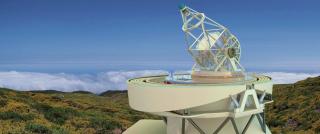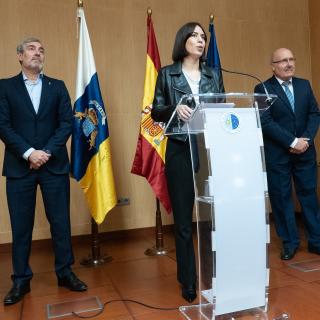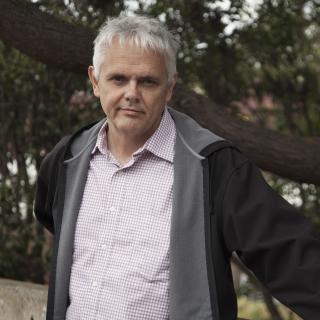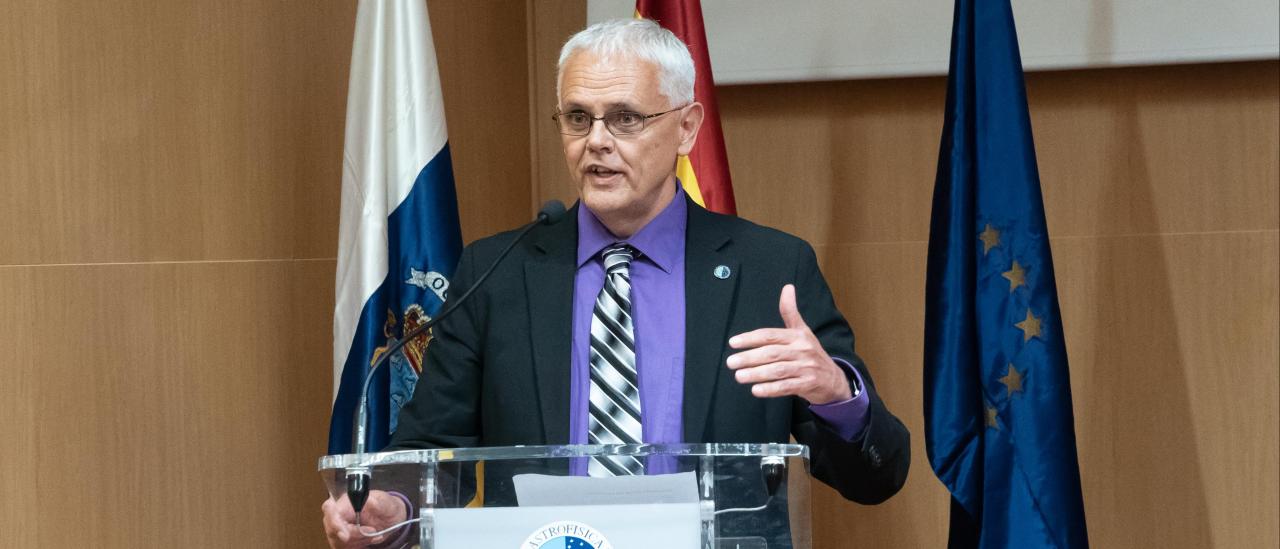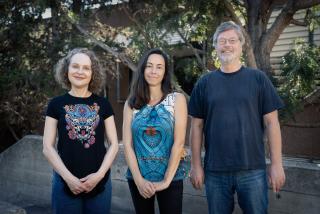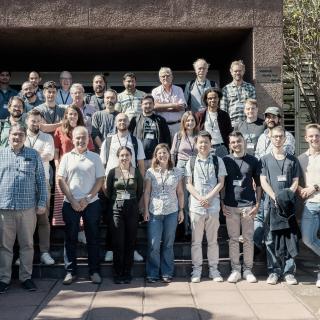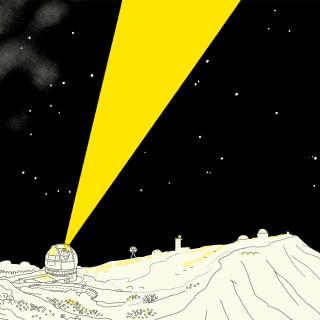The researcher Valentín Martínez Pillet has taken up his duties as Director of the Instituto de Astrofísica de Canarias (IAC) today, Monday 1st July, in a ceremony with the participation of the Secretary General for Research of the Ministry of Science, Innovation and Universities Eva Ortega-Paíno, and the outgoing Director of the IAC, Rafael Rebolo.
The new Director of the IAC, Valentín Martínez Pillet, takes up the challenge of running the centre in which he is a Research Professor with “a great sense of responsibility” and with the aim of mainaining and enhancing its scientific and technological leadership, but above all to promote the human aspects of each and every one of the members of this centre of excellence “because without the commitment and day to day effort of all the links in this great chain outstanding science and technology would not be posible”
In the ceremony of taking office there was participation by the Secretary General for Research of the Ministry of Science, Innovation and Universities, Eva Ortega-Paíno, and the outgoing Director of the IAC Rafael Rebolo López. Also present at the ceremony were the Rector of the University of La Laguna, Francisco García, the Councillor for Universities, Science, and Innovation of the Government of the Canaries, Migdalia Machín, and the Councillor for Innovation, Research and Development of the Cabildo of Tenerife, Juan José Martínez.
The Secretary General for Research in the Ministry of Science, Innovation and Universities Eva Ortega stressed that “Martínez PIllet’s experience in international projects will strengthen even further the position of the IAC in the international scientific community, and was sure that under his leadership “The IAC will continue to be an international point of reference in astrophysical research, developing innovative projects, and strategic collaborations which will contribute significantly to the advance of scientific knowledge."
Ortega also made a firm commitment of the Spanish Government to the IAC “Its future is totally assured. For this purpose we will continue to collaborate closely with the Government of the Canaries and other bodies to develop innovative projects which promote the scientific and technological developemnt of the región. We continue to give full support to knowledge and talent, essential pillars for the progress of the Canaries and of the country as a whole.
Rafael Rebolo welcomed Valentín Martínez Pillet, and wished him the very best posible good fortune in leading one of the few Spanish centres which had kept the Severo Ochoa seal of excellence since its inception, with close to 600 scientific articles per year published in high level scientific journals and whose observatories house more than 40 operative telescopes covering a range including solar physics, optical and infrared astronomy, and gamma-ray astronomy.
Rebolo, in his final act as Director after a decade directing the IAC, expressed his gratitude for the support received from the different institutions and had words of recognition for all the IAC's coordinators and management team who have accompanied him over the years. He also wished the new director "all the success in the world, because your success will be the success of the Institute."
Valentín Martínez Pillet in his inaugural speech mentioned the scientific challenges facing the Institute, such as giving priority to the initiation of the Adaptive Optics system for the Gran Telescopio de Canarias (GTC) based of laser guide stars and related instrumentation. With this change, not only would the GTC remain the largest telescope in the world,but in addition it would have a resolution comparable to those of space telescopes.
Also the new Director noted the importance for the IAC to keep working to attract the new generation of large telescopes. This covers the installation of the 4 Large-Sized Telescope (LST), of 23 metres, to observe the most energetic phenomena in the Universe , which will be installed at the Roque de los Muchachos Observatory and which will form parts of the Cherenkov Telescope Array (CTAO), he also mentioned the European Solar Telescope (EST), a 4m instrument which will be the most ambitious solar proyect in the world.
Martínez Pillet also stressed the need to strengthen efforts to promote the quality of the Canary skies in an international context. As milestones in his mandate he also noted the international impulse of the Canary Observatories which enjly, without a doubt skies comparable to those above other nodes of world astronomy in Chile and Hawaii.
In his address the new director spoke of a concept which is not so much astrophysics, but is essential when setting out objectives: good hope. This is essential and is the motor which coverts all these challenges to Humanity into realities. “Only with happy people, full of hope, will we be able to resolve the major challenges of the coming decades, because excellence in research and technology is based on the excellence of the personnel of the IAC who have shown their commitment since the days when it was founded, and has given its best in order to maintain the quality of this Institute.
Research and management experience
Valentín Martínez Pillet is Research Professor of the IAC, and since 2013 has been the director of the National Solar Observatory (NSO) of the United States, while on Special Duty. Under his mandate the NSO has built the biggest solar telescope in the world the DKIST (Daniel K Inouye Solar Telescope), on Maui (Hawaii). In addition he was instrumental in the move of the NSO headquarters from Arizona and New Mexico to Colorado and Hawaii, which was a challenge, both in logistics and in the management of human resources.
During the decade while he has been in the United States, Martínez Pillet has also defined the Next Generation GONG, Project, where the acronym stands for Global Oscillations Network Group which is a world-wide network for observing the Sun’s oscillations 24 hours per day, with one of its instruments at the Teide Observatory. The data from the GONG network are in current use by international agencies throughout the world to predict space weather conditions.
As a researcher Martínez-Pillet works on solar magnetism and its measurement using spectropolarimentric techniques, from both ground based and space based instruments He has collaborated in severalinternational projects on solar physics and space instrumentation and was president of the Division of the Sun and the Heliosphere of the International Astronomical Union (IAU) from 2009 to 2012.
Photos and video
